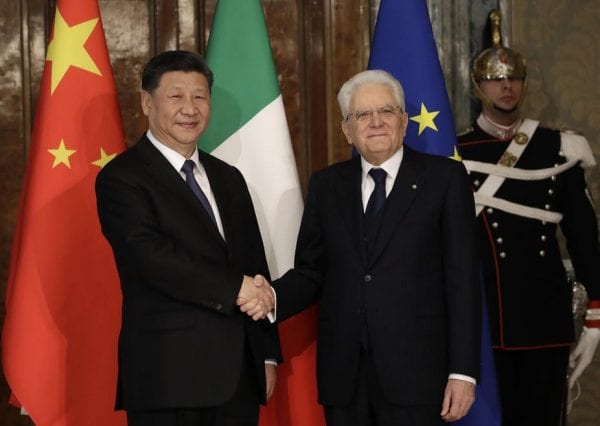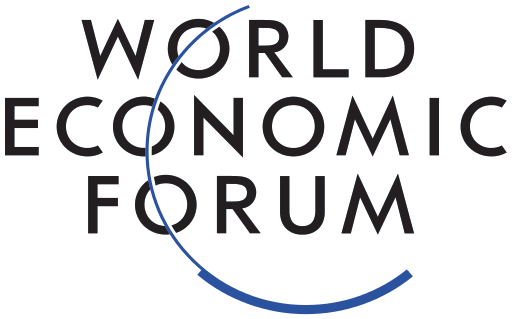The UK didn’t need the EU to enjoy multiculturalism – quite the reverse
Category Archives: Global political economy
Russian Twitter propaganda predicted 2016 US election polls
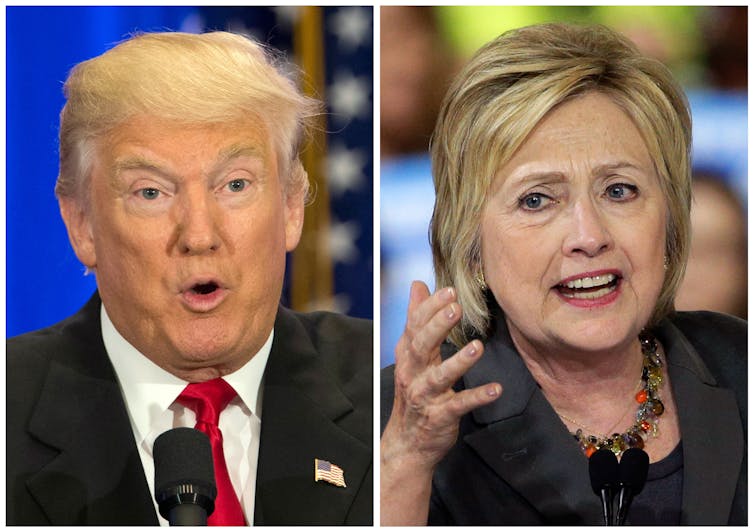
AP/Mary Altaffer, Chuck Burton
Damian Ruck, University of Bristol
When Robert Mueller completed his long-awaited investigation into Russian interference in the 2016 presidential election, he left many questions unanswered.
But one conclusion was unequivocal: Russia unleashed an extensive campaign of fake news and disinformation on social media with the aim of distorting U.S. public opinion, sowing discord and swinging the election in favor of the Republican candidate Donald Trump. Continue reading
Italy joins China’s Belt and Road Initiative – here’s how it exposes cracks in Europe and the G7
China and Italy’s presidents shake hands. EPA-EFE/Alessandro Tarantino / Pool
Winnie King, University of Bristol
Italy is projected to be the first G7 nation to officially endorse China’s Belt and Road Initiative (BRI). And that’s raising the ire of both the European Union and the United States. Continue reading
Counter-terrorism Prevent strategy receives a boost from the courts – and statistical evidence
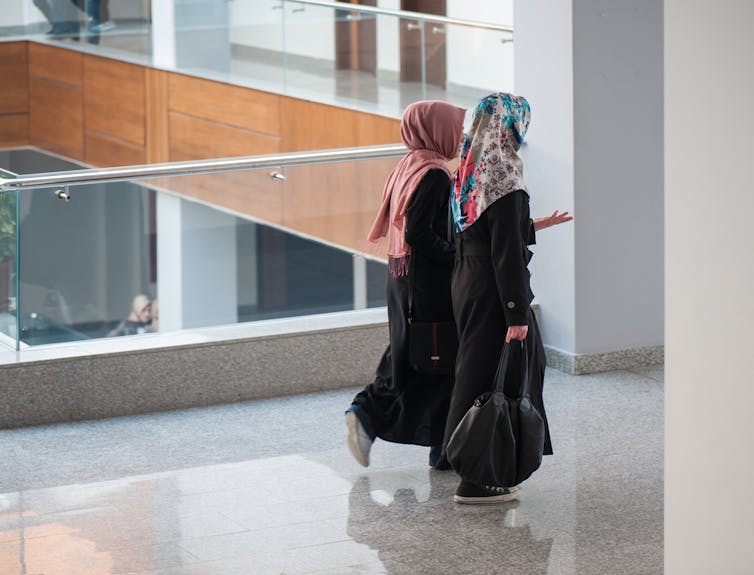
Steven Greer, University of Bristol
Of the four “Ps” which frame the UK’s counter terrorism strategy – Pursue, Prepare, Protect and Prevent – the latter is by far the most controversial. It is the Prevent scheme which aims to stop people from becoming terrorists, or from supporting those who already are. Continue reading
What we found out about bribery patterns in Uganda’s health care system

Suuba Trust/Flickr
Heather Marquette, University of Birmingham; Caryn Peiffer, University of Bristol, and Rosita Armytage, Durham University
In September 2017 Uganda’s former Minister of Health, Dr Sarah Opendi, disguised herself in a hijab and travelled by boda boda (motorbike taxi) to Naguru Hospital in Kampala. The minister then asked for routine laboratory tests. They should have been given to her free of charge but instead the health workers asked for a bribe. Continue reading
The 1960s GOP show how tactical extremism can salvage a party’s electoral fortunes
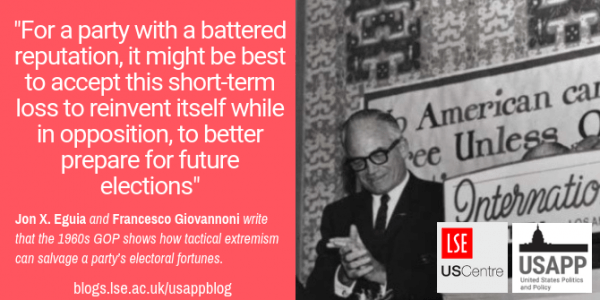

Credit: Reagan Presidential Library [Public domain], via Wikimedia Commons
The rise of Trump and Brexit has reminded that we are never too far away from the politics of extremes. But these sorts of trends are nothing new, argue Jon X. Eguia (left) and Francesco Giovannoni (right). Looking back to the Republican Party of the 1960s, they write that a political party that faces poor public opinion can improve its fortunes by dramatically reinventing itself and proposing a radical alternative to voters.
Continue reading
Davos: leaders talk about globalisation as though it’s inevitable – when it isn’t
Jennifer Johns, University of Bristol
Global leaders have descended on the Swiss ski resort of Davos for the World Economic Forum’s annual meeting. This year’s theme is “Globalisation 4.0: Shaping a Global Architecture in the Age of the Fourth Industrial Revolution”. Continue reading
COP24: ten years on from Lehman Brothers, we can’t trust finance with the planet

Tomaso Ferrando, University of Bristol
Lehman Brothers filed for bankruptcy on September 15, 2008. The investment bank’s collapse was the drop that made the bucket of global finance overflow, starting a decade of foreclosures, bailouts and austerity. Continue reading
Enough magical thinking. The silly season must stop here

Phil Syrpis, Professor of EU Law, University of Bristol Law School
Britain has only a couple of months left to decide on its future relationship with the EU. Phil Syrpis (University of Bristol) says it is time for both the government and the opposition to level with the public about the choices involved. The coarse sloganeering of the past two years will lead to a destructive Brexit unless politicians get real.
The summer recess is often described as silly season. But this year is different: the silliness has to stop. We have just two months to decide on our future relationship with the EU, and the magical thinking – in the government and Labour party alike – is no longer sustainable. Continue reading
The term ‘fake news’ is doing great harm
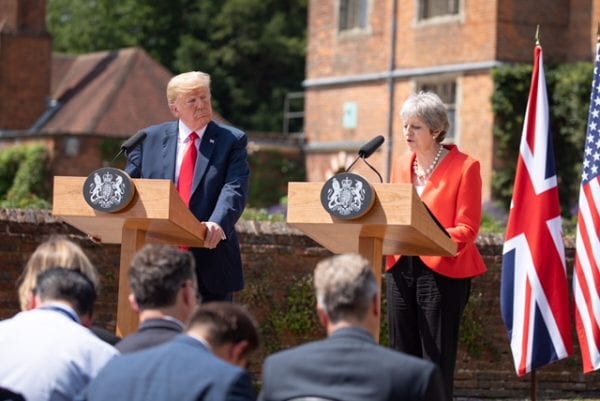 Joshua Habgood-Coote, University of Bristol
Joshua Habgood-Coote, University of Bristol
During a recent press conference in the UK, Donald Trump shut down a reporter from the news network he loves to hate. “CNN is fake news – I don’t take questions from CNN,” he said, moving swiftly on to a reporter from Fox News.
It’s easy to think that everyone knows what “fake news” means – it was Collins Dictionary’s word of the year in 2017, after all. But to think it stops there is mistaken – and politically dangerous. Not only do different people have opposing views about the meaning of “fake news”, in practice the term undermines the intellectual values of democracy – and there is a real possibility that it means nothing. We would be better off if we stopped using it. Continue reading

